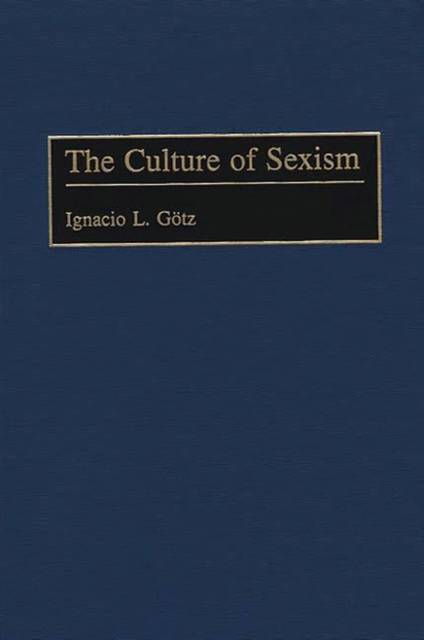
- Retrait gratuit dans votre magasin Club
- 7.000.000 titres dans notre catalogue
- Payer en toute sécurité
- Toujours un magasin près de chez vous
- Retrait gratuit dans votre magasin Club
- 7.000.000 titres dans notre catalogue
- Payer en toute sécurité
- Toujours un magasin près de chez vous
Description
Most contemporary analyses of sexism focus on economic, social, and political inequalities and suggest appropriate remedies. In contrast, Götz argues that sexism arises, at least in part, out of a subconscious male envy of women's capacity to receive. He refers to this as womb envy. The obvious ground of this envy is the realization by the growing boy that women have something he lacks.
Götz documents this subconscious envy as reference to a variety of mythological motifs, fairy tales, and religious beliefs, including theological constructs. His study is cross-cultural, though special emphasis is placed on Western traditions. The importance of mythology, especially, is the fact that it bears witness to people's real beliefs, and that it does so for a considerably long period of time. Thus myths become a good proof of the hypothesis of womb envy. Götz also explores briefly some psychological mechanisms operative in the formation of womb envy, and he examines schooling as one institution that has perpetuated the womb envy that is so much a part of sexism. A provocative analysis, this will be of interest to the general public as well as scholars and researchers involved with Women's and Religious Studies, education, psychology, and philosophy.Spécifications
Parties prenantes
- Auteur(s) :
- Editeur:
Contenu
- Nombre de pages :
- 142
- Langue:
- Anglais
- Collection :
Caractéristiques
- EAN:
- 9780275965662
- Date de parution :
- 30-10-99
- Format:
- Livre relié
- Format numérique:
- Genaaid
- Dimensions :
- 162 mm x 243 mm
- Poids :
- 408 g







